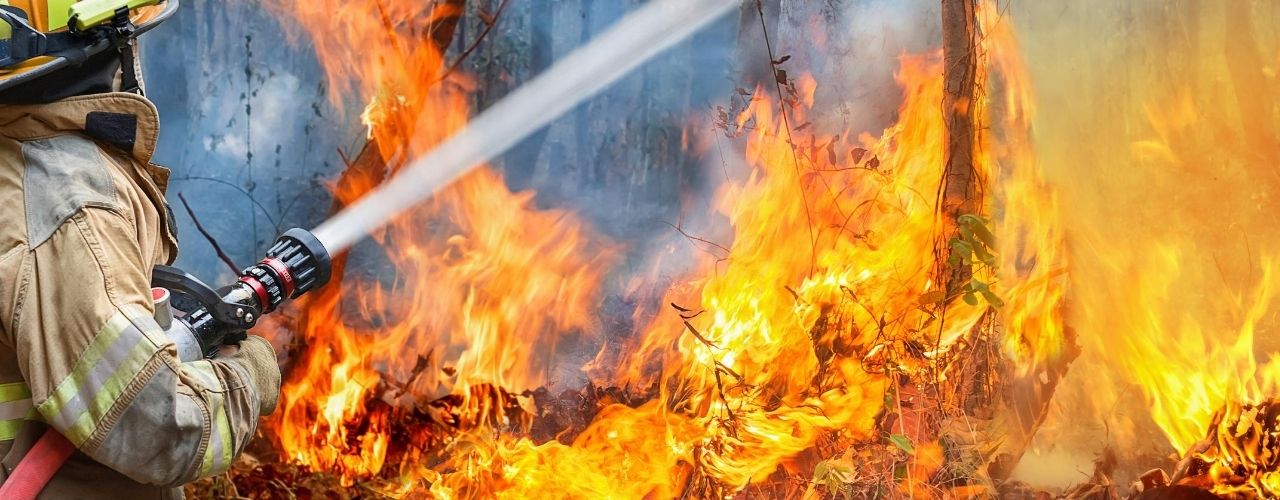Smoke inhalation and the destruction of trees, wildlife, and homes are obvious effects of wildfires. Less obvious is how wildfires affect the water supply. The increasing frequency, intensity, and growing size of wildfires have created conditions that could overwhelm water utilities. Denuded hillsides lack vegetation that would ordinarily absorb rainwater. The soil in burned areas bakes and becomes less permeable. When heavy rains follow a fire, runoff increases substantially, carrying with it ash, charred debris, chemicals, and toxins released in the fire. These flow into streams and reservoirs, clogging intakes for municipal water supplies and polluting the water. Water utilities in mountain areas subject to wildfires have had to invest in new methods and materials to purify water contaminated with organic carbon, ash, sediment, and debris.
Runoff after a wildfire contains nutrients such as nitrogen and phosphorous that promote the growth of algae in previously clear streams. Fires also release mercury from the soil and trees, which flows into waterways and is absorbed by microorganisms and other invertebrates that are, in turn, consumed by fish. While fish grow larger from an abundance of nutrients, they also take up the mercury that travels up the food chain. It has since reached a point that public health officials issue warnings about human consumption of the affected fish populations.
While wildfires can replenish forests, encourage new growth, and provide strong runoff that increases water yield downstream, the runoff can run amok. Flooding can follow wildfires, causing potentially deadly debris flows of boulders, mud, and landslides.
The effects of wildfires on water supplies can persist for years. Reservoirs with increased sediment levels may have to be dredged. Heavy metal and chemical contamination affects ecosystems, killing aquatic life, and altering their habitat in ways that slow the ecosystem’s recovery. The U.S. Geological Survey reports that 80 percent of freshwater resources in the United States originates in forest lands. Thousands of public water systems are located in watersheds that include national forests. Experts agree that wildfires will continue to worsen, and they predict that all communities that get their water from forest watersheds will eventually have to deal with water contaminated by wildfires.
Homeowners concerned about water quality should look for signs of contamination and have their water tested. Depending on the results of a water quality test, you may need to install a home filtration system or disinfect private wells.





